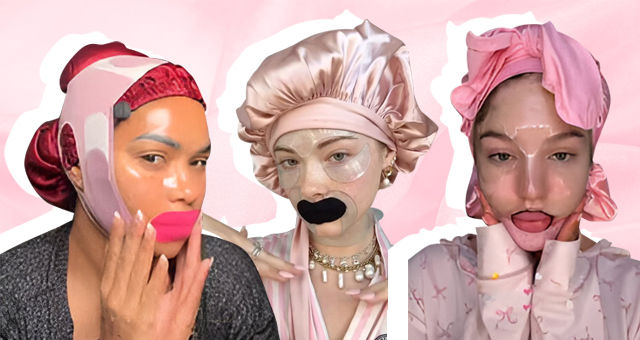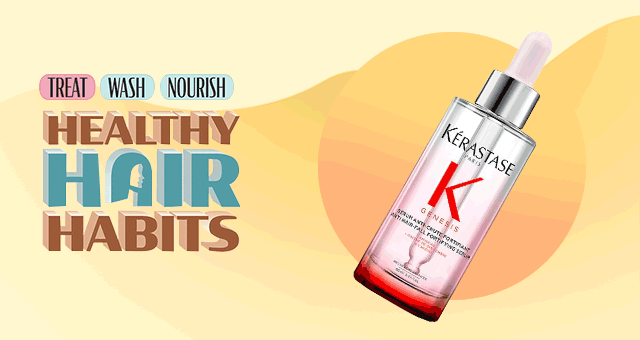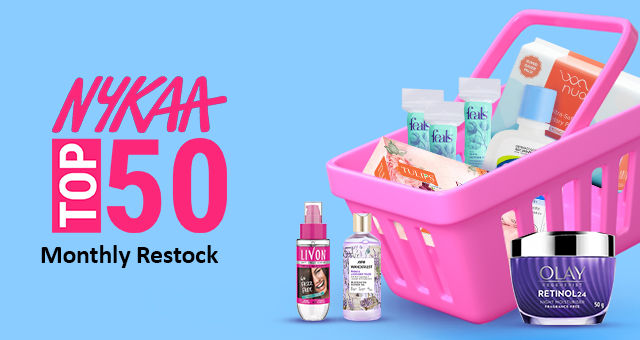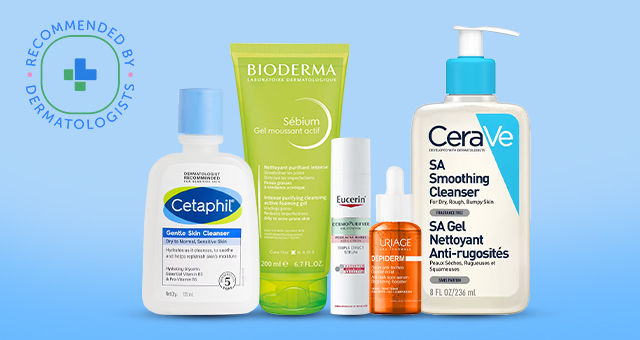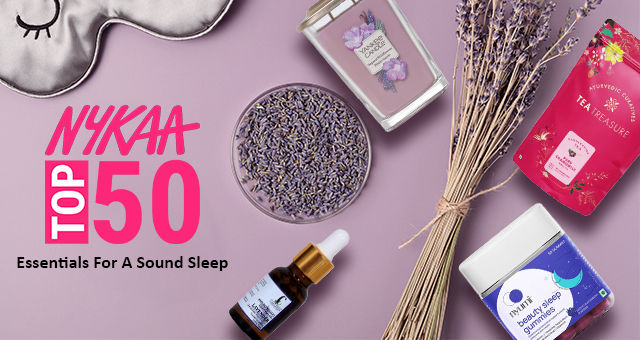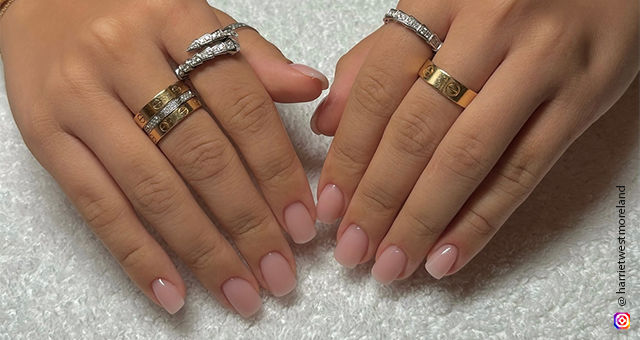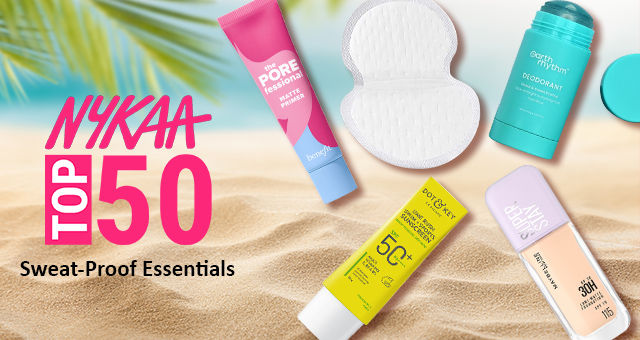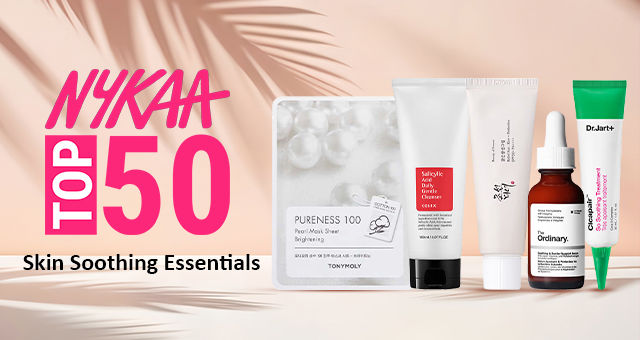
In This Story:
Maintaining healthy, radiant skin is no easy task, especially after long days of being exposed to the sun, pollutants, sweat, and so much more. Even after giving your body the right nutrients and applying moisturisers and SPF in the morning, your skin needs some more TLC to restore and repair itself for that healthy glow. It’s called “beauty sleep” for a reason girls! A proper nighttime skincare routine that cleanses and hydrates the skin will not only help you get a natural dewy glow but also regulate oil production to say goodbye to annoying acne breakouts.
While you're at it, why stop there? It only makes sense to create the ultimate P.M. routine that restores the skin’s pH balance, complements your skin type, and includes serums with actives to treat your different skin woes. We promise you, that dedicating a few minutes before bed will help you witness a significant improvement in your skin’s appearance and achieve your healthiest skin yet. Let’s dive right in!
Prep For Different Skin Types
Your nighttime skincare routine begins with cleansing and toning the skin. Washing the face with a mild cleanser is a no-brainer – it effectively removes makeup, dirt, and impurities, without ripping it of its essential oils.
Using a toner provides a boost of hydration and restores the skin’s pH balance, which in turn promotes better absorption of the serums and creams that will follow. Here’s what to look for while choosing a cleanser and toner for different skin types:
- Oily: Use a gel-based cleanser to unclog the pores and remove excess oil. Toner with niacinamide will also help reduce oiliness and minimise pores. Look for ingredients like salicylic acid, glycolic acid, tea tree oil, and witch hazel.
- Dry: A creamy cleanser will give your parched skin some much-needed moisturisation while a hydrating toner will soothe the skin. Ingredients that help add an effective layer of hydration include hyaluronic acid, glycerin, ceramides, and natural plant extracts such as aloe vera and rose.
- Combination: Opt for a foaming cleanser and gentle toner which will help you find a balance between moisturising the dry areas and regulating oil production in the oily patches. A combination of ingredients meant for oily and dry skin will be ideal.
- Sensitive and Acne-prone: Mild cleansers and alcohol-free toners will help soothe sensitive skin and avoid breakouts for acne-prone skin. Look for soothing ingredients like rose water, chamomile, or tea tree oil and avoid fragrances.
Serums For Different Skin Concerns
Now that your skin is prepped, it’s time to use treatments in the form of serums to target specific concerns like dullness, dark spots, signs of ageing, acne, and more. Here are some top-rated and bestselling options to choose from for different concerns.
1. Brightening
A study says that kojic acid can be used for skin lightening effectively with a concentration of 2% and the serum from The Derma Co offers just that to help you get rid of dark spots and pigmentation. If you’re a beginner or just want the lit-from-within glow, opt for the Minimalist 10% Vitamin C serum that also strengthens the skin.
Nykaa Recommends:
2. Anti-Ageing
Tested on Indian skin, the Estee Lauder night repair serum is fortified with the exclusive ingredient Tripeptide-32 which evens the skin tone and promotes firmness. If you wish to improve the look of wrinkles on the face, opt for the Murad Retinol Youth Renewal Serum which is suitable for all skin types.
Nykaa Recommends:
3. Hydrating
Get plump and glowing skin with the Innisfree Hyaluronic Acid Green Tea Seed Serum that relieves dehydrated skin and improves elasticity. Want to hydrate the skin while getting rid of fine lines? Opt for the L'Oreal Paris Revitalift Hydrating Serum with micro-epidermic hyaluronic acid that allows for deeper penetration into the skin.
Nykaa Recommends:
4. Acne-Curbing
Acne breakouts got you down? Grab the Derma Co. 2% Salicylic Acid Serum ASAP to say goodbye to pimples as well as whiteheads and blackheads. The Perenne Niacinamide Serum With Centella Asiatica helps clear breakouts, reduces scars, and regulates sebum production.
Nykaa Recommends:
5. Skin Soothing
Irritation, redness, and inflammation in sensitive skin can be treated by using barrier-building serums that strengthen and soothe the skin. The Ordinary serum contains Vitamin B12 to impart a healthy pink glow to the skin and ceramides that maintain the skin barrier, as per a study. The Within Beauty Calming Drops are enriched with ceramides and niacinamide to improve skin elasticity as well as natural ingredients like aloe vera and cucumber for a calming effect.
Nykaa Recommends:
6. Texture Enhancing
Glycolic acid provides deep exfoliation and balances uneven skin tone and Dr. Sheth's Gulab & Glycolic Acid serum is the perfect balance of this hero ingredient and calming rose extracts. Suganda 5% Lactic Acid Serum is beginner-friendly and goes a long way in effectively exfoliating and improving skin texture.
Nykaa Recommends:
7. Damage Repair
With 96% snail secretion filtrate, the COSRX Power Essence is a miracle worker that can repair any form of damage – hyperpigmentation, breakouts, or even dry patches. What’s more? It’s free of parabens, ethanol, and surfactants, making it suitable for sensitive skin. If you are looking to treat scars, and wounds, or a remedy for skin conditions, opt for a serum with the anti-inflammatory ingredient Cica – this study says so. We recommend the Nykaa Naturals Barrier Repair Face Serum which has nature-derived ingredients.
Nykaa Recommends:
Dos And Don’ts Of Combining Serums
While you can use multiple serums to target different concerns, here are some dos and don’ts to ensure you are combining the right active ingredients and maximising the benefits.
Dos ✔️
Layering: Always apply water-based serums first and follow it up with oil-based serums. In the same vein, layer serums from the thinnest to thickest consistency to ensure even application.
Complementary Actives: Combined active ingredients that complement each other. Examples include Vitamin C with ferulic acid, hyaluronic acid with retinol, peptides, or niacinamide, and salicylic acid with glycolic acid. Similarly, using Vitamin C with benzoyl peroxide or AHAs can cause irritation and some combination of actives – like niacinamide and Vitamin C – can cancel each other out.
Patch Test: Always (we mean it) patch test new serums or combinations in a discreet area and wait 24 hours to check for reactions before using it on the face.
Don't's ❌
Use multiple exfoliants: Never use multiple chemical exfoliants such as AHAs and BHAs. Use one at a time to avoid irritation and sensitivity.
Overdo: Combine 2-3 serums at a time. Throwing everything you have at a problem may work sometimes, but not when it comes to skincare. Using too many serums with active ingredients can cause breakouts or even redness.
Skip sunscreen: While the nighttime routine is key to restoring and reviving your skin, SPF is crucial to protect the skin. It is especially important while using serums as some active ingredients can increase your skin’s sensitivity to the sun.
Final Steps & Additional Tips
After applying the necessary serum treatments, let’s explore how to lock in the nourishing benefits and ensure they have the best chance to restore and revive your skin overnight.
- Lock-in hydration: The final step of your skincare routine must be a layer of moisturiser. This locks in moisture and allows the serums and night creams applied earlier to absorb into the skin. (Read more: How to choose and use a moisturiser for maximum benefits).
- Under-eye cream: The under-eye area often gets overlooked as most serums and creams are recommended to avoid contact with the eyes. So, adding an under-eye cream to your nighttime skincare routine will help brighten the skin and reduce dark circles
- Avoid contact with hot water: Steamy showers sound tempting and relaxing both before bed and early in the morning. However, hot water can strip the skin of its essential oil, making it dry, and irritate the skin.
- Check ingredients: It is always a good practice to carefully check the ingredients of every product you use to avoid allergens and patch test before incorporating them into your routine. You should also avoid products that contain alcohol, fragrances, and harsh chemicals like parabens.
- Let the products dry: While layering products, ensure you allow the serums and creams to absorb and wait a few seconds between each product. Don’t jump into bed right after the last step and wait for at least 5 minutes to keep the product from rubbing off into your pillowcases or bedsheets.
FAQs On Nighttime Skincare Routine
-
What is a good nighttime skincare routine?
A good nighttime skincare routine focuses on cleansing the skin and assisting its restorative process overnight with targeted serums, treatments, and creams. One should also make sure to hydrate and moisturise the skin before bed.
-
In which order do I do my night skincare routine?
- Cleansing
- Toner
- Targeted skin creams
- Serums for different concerns
- Under-eye creams
- Moisturiser
-
What skincare should I do before bed?
Always remember to cleanse your face before bed and apply any serums, eye creams, or gels that need a long time to penetrate the skin.
-
What are the 4 basics of skincare?
Cleansing, serum, moisturiser, and sunscreen are the core basics of skincare. We’ve made it super easy for you to understand these skincare basics and get a 4 step glow with CSMS.
-
What is the Korean 7-layer method?
The viral Korean 7-layer method includes applying 7 layers of toner after cleansing the skin and then applying moisturiser. It is said that this method deeply hydrates the skin for a naturally plump appearance.















